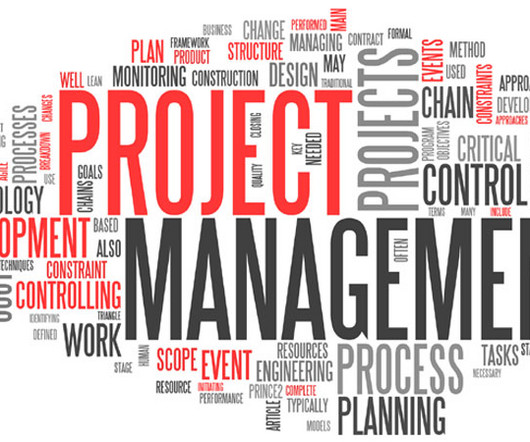9 Types of Artifacts in Project Management
Rebel’s Guide to PM
MARCH 18, 2021
Whether you subscribe to the PMI way of thinking or use another approach based on your background, skills, experience, certification or the expectations of management, I’m pretty sure that you’ll have to create project documents. We create baselines throughout the project. But what if you don’t use PMI methods?














Let's personalize your content